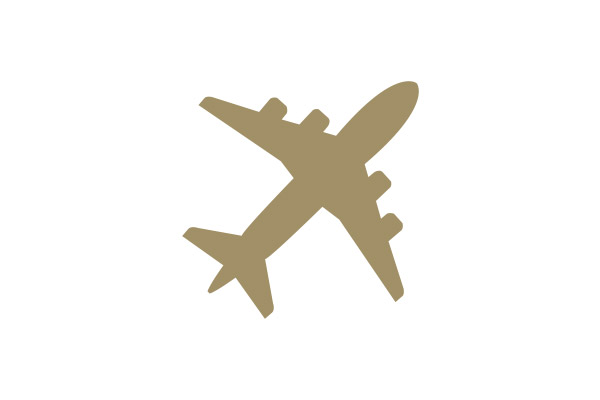Interviewing with Aviation & Allied Business Journal, Faizal Gara, our Business Development Manager specialising in aviation consultancy, extensively discussed upcoming ACMI and financing issues that African Airlines might face. Here are the topics covered:
What is the noticeable trend in aircraft leasing and financing in Africa?
The consensus is that aircraft lessors and financiers are still reluctant to lease or finance aircraft to African operators, which are considered high risk relative to other placement opportunities. Because of this financing gap, we observe local initiatives seeking to establish or expand domestic African aircraft leasing and financing platforms. Notable examples are Afreximbank, African Development Bank, AMCON and CIAF Leasing, which all have their own leasing and financing initiatives.
Due to the higher perceived risk of investing in Africa, aircraft lessors and financiers are more receptive to financing African carriers via aircraft lessors rather than as direct lending deals. Where direct lending deals do take place, these are typically done with established state-owned carriers such as Ethiopian, TAAG, Kenyan Airways and Egypt Air and are often backed by Export Credit or Insurance enhanced lending. While aircraft lessors and financiers are keen to invest in Africa and its airlines, they face their own challenges in getting past the political uncertainty, accessing foreign currency, holding confidence in local courts, and overcoming political unrest that affects African carriers.
What are the peculiar challenges you face with leasing and financing African airlines that you don’t see elsewhere?
The biggest challenges are political uncertainty and civil unrest. Take Sudan as an example; with reports of aircraft being destroyed at Khartoum International Airport, Lessors may charge (if they are not already doing so) a premium for aircraft flying into this type of region. From a financing viewpoint, this will be different unless the payments are made on time. However, there will be harsher reactions to any payment defaults. African airlines as a whole also need to develop fleet consistency as a typical airline will have widebody A330s, B787s, and B737 classics as well as NGs and turboprops with vintages of 20+ years to new.
This inconsistent setup requires a significant expenditure on crew training, pilot acquisition costs, maintenance approvals and programmes etc. Fleet consistency can help to reduce costs and support a leaner operation. If an airline has this in place, there will be less reluctance for leasing and financing opportunities. Currently, airline customers will tend to use reputable carriers such as Emirates, THY, Etihad etc., to fly into Africa. While they are willing to stop over, the image of safety and security is essential.
Do you think ACMI leases are good options for the long-term growth of African airlines?
ACMI leases are a low-capital-cost means of gaining access to additional capacity for African operators. African carriers are typically undercapitalised, and due to perceived risk, they face challenges in gaining access to capital to finance fleet growth. Where accessible, pricing factors in this perceived risk make third-party capital expensive. These constraints lead African airlines towards ACMI as a practical solution to add capacity and scale their fleets. While ACMI is more costly than operating leases or aircraft ownership, given the capital constraints they face, it is often the most practical solution.
Air safety has improved recently in Africa. How has this affected lease rates, insurance and market confidence in aircraft placement with African carriers?
Although air safety has improved, the real question is whether the safety of people travelling into various parts of Africa has improved. Those visiting will either know the places well or spend more on security. This means a trip to Africa will not be cheap. I would take exception to this with places like Egypt, Morocco and North African countries where there is a demand to fly to these places and at affordable prices.
Lease rates will be at a premium, as market confidence, as highlighted, is still a concern in most parts of Africa (whether justifiable, fear-generated or due to consumer misunderstanding influenced by media reports). Except for North African operators, very few airlines in mainland Africa instil confidence in aircraft placement. With the current and recent uncertainties in certain African nations, I will not be surprised if there’s an insurance premium; I should also add the claims which have arisen due to the Russia / Ukraine war may have forced insurers to up their premiums.
African airlines are traditionally small. How is this affecting their appeal for financing?
Financiers are typically concerned about the size of the deal and what the ROI will be. Obtaining financing may be challenging if used aircraft are considered for an airline with a small fleet profile. Add that to the inherent risk of African airlines, and the risks may be huge and the rewards small. Some boutique financiers are willing to finance these airlines, as are some African banks with aviation financing-led exposure.
COVID-19, Russian War, interest rate hikes and Inflation. How have these affected aircraft financing in Africa?
Africa, like the rest of the world, is impacted by this. Even before the war, Africa was deemed high risk. However, again with special mention to CIAF Leasing and Afrexim Bank, they are taking steps to enhance financing solutions for African airlines.
COVID-19 has thrown up the need for business agility and digitalisation. Are you encouraged by the response of African airlines?
The responses by the African airlines mirror that of the rest of the world. At the very least, business agility and digitalisation should be on the agenda if they are not already being implemented. Mentioning the financial risk of leasing aircraft to African airlines again, if the aircraft records are adequately maintained and digitalised, this will provide more reassurances to potential lessors and financiers.
We have seen African airlines take delivery of aircraft that do not fit their current route network. What is your take on this?
African airlines have been notorious for this and for not having a consistent fleet, which is one of the critical indicators for an airline that will fail. The OEMs refer consultants with specific airline consultancy experience to advise on the best aircraft types for their route networks. The OEMs are now proactive in the sense that their aircraft are to be placed within an airline that will work. A failed airline with an OEM-delivered aircraft would be seen as damaging to one’s reputation.
In order to align with the carbon emission guidelines, African airlines will need to invest in newer technology aircraft. How should African airlines go about their refleeting?
I believe that African airlines, first and most importantly, need to have a strategic plan in place. To get the right processes in place regarding profitable route networks, the most appropriate aircraft types, analysis on the market, competitors, target customer base etc. This sounds basic and simplistic, but once these measures are in place, the airline starts thriving and operating profitably, and then the next steps will be re-fleeting with newer technology aircraft. If there is an investor with extremely deep pockets, then they will need to be very patient to finally start seeing returns. However, demonstrating operational capability first and foremost is a must.
ACC has a partnership with AFRAA. What is the idea behind this partnership, and how is it benefiting African Airlines?
We work with and seek to work with many associations to make a difference, propose the best solutions and ensure that the best outcomes are achieved. Although ACC is a global business, we have been fortunate to work with African entities (from airlines to leasing companies and banks) due to our unique understanding and familiarity with the African landscape. AFRAA is a platform for anyone seeking solutions and opportunities, and for those that are unaware of where to find such help, ACC is easily found.
In your opinion, what would be the impact of SAATM on aircraft financing in Africa?
Although not without its critics, I believe this is an encouraging step. This would be an ideal time to develop legislation (akin to Cape Town) for the protection of assets and rights to recovery. Having such protectionist conventions in place should open the door to financing opportunities, reduce the risk and modernise air travel in Africa as a whole. The critics are complaining that this will be challenging for the smaller operators to complete and will make the barrier to start-up entry more difficult, but is this such a bad thing? The quality of start-ups will improve significantly, thus making aviation more lucrative industry-wide all across Africa for OEMs and lessors, financiers, airlines and even consultants.
Consolidation has been pushed for African airlines, and recently South African Airways and Kenya Airways have been trying to form a Pan African airline. What is your take on this from a financing point of view in particular, and generally on the prospect of such consolidation?
In theory, financial risk will be reduced. However, a pan-African airline may mean that financial returns will be less than somewhere deemed a greater risk. South African and Kenya Airways have both had their struggles. Before such consolidation is to occur, each airline must first demonstrate lean and efficient operations.




